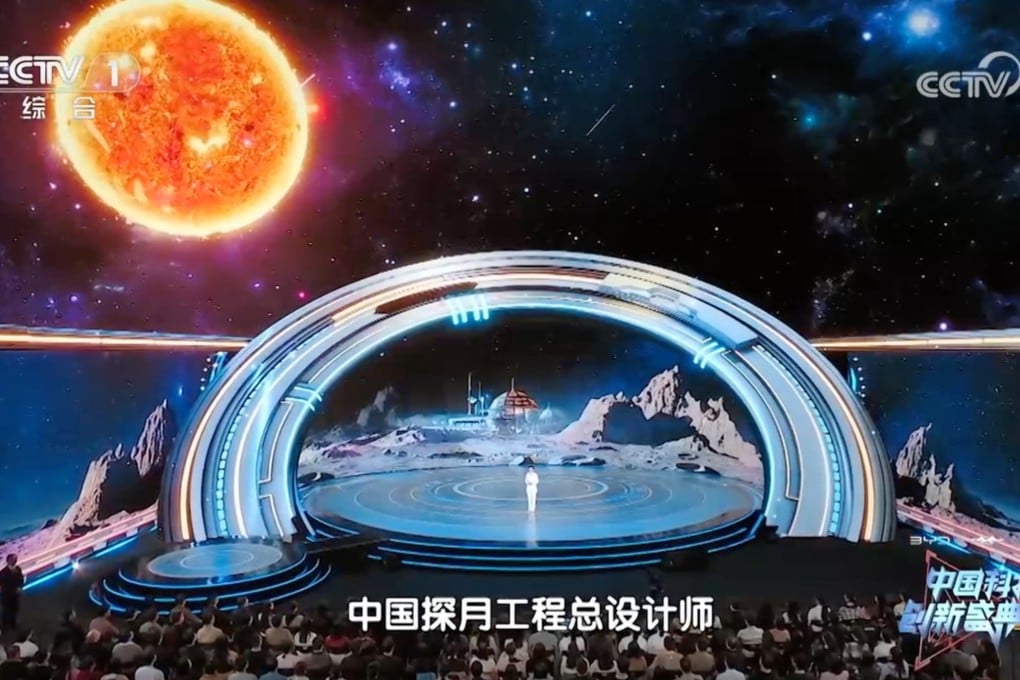Advertisement
New Year gala praises China’s science achievements as US tech war shows no signs of ending
An end-of-year TV show in China has switched the usual singing and dancing for a look at the nation’s 2024 triumphs in innovation
Reading Time:3 minutes
Why you can trust SCMP
3

Jane Caiin Beijing
China has held its first science and technology-themed New Year gala, rallying support for its pursuit of innovation prowess amid the ongoing tech war with the United States.
While end-of-year shows on Chinese TV are usually focused on entertaining audiences with singing and dancing performances, on Sunday, state broadcaster CCTV aired the science-focused programme to update the public on China’s progress on everything from artificial intelligence (AI) to quantum technology.
It was then followed on Tuesday with President Xi Jinping’s annual televised New Year message, in which he highlighted China’s science and technology achievements of 2024. In his address, he praised the country’s record output of 10 million new energy vehicles (EVs) and hailed breakthroughs in integrated circuits, AI and moon exploration.
As China headed into 2025, Xi said, the country would pursue “high-quality development as a top priority” and “promote greater self-reliance and strength in science and technology” – all while the economy faced “challenges of uncertainties in the external environment” and the pressure of transformation domestically.
Many of these external challenges are expected to come from the direction of Washington. With US president-elect Donald Trump set to return to the White House for a second term, it is widely expected America will further limit China’s access to certain hi-tech products, following on from the past few years of export and investment curbs on advanced chips and chipmaking machines.

During the gala, areas such as advanced functions of EVs, generative AI, humanoid robots, drones and brain-computer interfaces in Chinese companies were showcased, while the progress of national projects was commended, ranging from deep sea exploration to FAST, the Five-hundred-metre Aperture Spherical Telescope which Beijing claims has identified more than 1,000 pulsars.
Advertisement